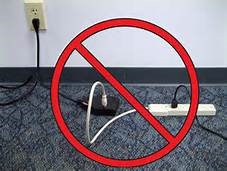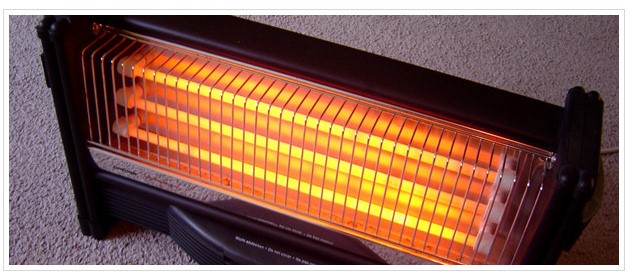Emergency Plan and Building Maintenance
GSE Emergency Plan/Additional Resources
GSE Emergency Plan
The Graduate School of Education Emergency Response Plan is used to respond to internal disasters, and/or disruption of services, earthquakes, or specific emergency situations. This plan applies to the main GSE campus buildings -- Graduate School of Education building, the Center for Educational Research (CERAS), and Barnum, and is a guiding document for additional GSE buildings in Littlefield, Wallenberg, and Ventura. This plan applies to all staff, faculty, and students within the GSE.
Graduate School of Education Emergency Plan
Emergency Information Quick Reference - GSE Main Campus
*All team members are expected to work in accordance with the Stanford University framework. Please refer to Stanford's emergency website(link is external) for University-wide emergency notifications and information.
Common Fire code Violations

Daisy Chaining
- A term that refers to power strips/ extension cords being plugged into other power strips/ extension cords. This commonly happens when there are not enough outlets around to meet electrical needs. Although daisy chaining may seem like a perfect solution to limited power supply, doing so can cause cables to overheat, thus melting sockets and/or insulation. This becomes a huge fire hazard because it exposes high voltage wires that can easily combust surrounding objects. Please contact facilities or IT if you find yourself resorting to daisy chaining due to a limited power supply.

Portable space heaters that DO NOT shut off when they tip
- These heaters are extremely dangerous because if they were to ever knock over in an unoccupied office space, they are likely to cause extreme damage very quickly. In addition, if these space heaters were to tip over on a carpeted surface, the likelihood of a fire starting is very high. Although space heaters are permitted, it is crucial that the only space heaters allowed in our community are ones that safely shut off when tipped over.
- *Please note: Even though space heaters that shut off automatically when knocked over are deemed safer products, there is still a chance that a space heater be defective. For this reason, space heaters should only be used while occupants are present.
- The facilities team is more than happy to check your space heater if you are unsure of its’ safety, or point you in the right directions in buying a space heater that complies with our fire code safety regulations.
Additional Resources:
Stanford Emergency Information(link is external) - If there were a disaster or emergency affecting the Stanford community, you would be able to obtain updates and important instructions through this website. If you need to report an accident or emergency situation on campus, dial 911. From a campus phone, dial 9-911.
Stanford Environmental Health & Safety (EH&S) Emergency Preparedness Resources(link is external) - Emergency response guide for faculty and staff.
Custodial Cleaning Schedule and Scope of Work
Stanford's custodial contractor has a cleaning schedule and scope of work tailored to each building and the department's needs. Below are links to each building's cleaning schedule and scope of work.
